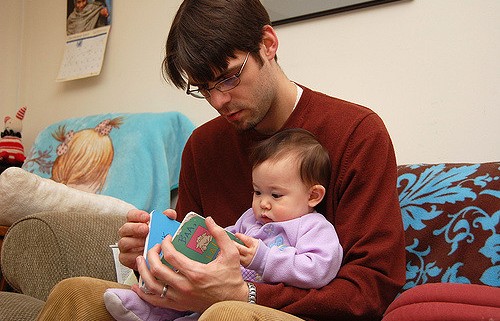Seven Things to Do to Raise Good Readers.
The ability to read and write are skills which make our lives so much easier… not only in our capacity to understand and find out about our world by researching in books or on-line eg looking up a recipe, but also in being able to read potentially dangerous situations, such as dosages on a medicine bottle. Reading also provides much pleasure, when we can be taken away in our imaginations to the world of, for example, Harry Potter.
So what can parents do, to raise their children to be readers?
1.Let them see you reading…. it doesn’t matter if it is a newspaper, a novel or the TV guide. The message you give your young children is that books or papers contain interesting and useful information.
2. Read to them from birth (or even in pregnancy). When you point out pictures in a book, babies are hearing the expression in your voice, and by the fact that you are holding them close… they start to learn that reading is associated with feeling good. Toddlers love when they hear your voice make the different sounds when reading eg a bear growl, or a motorbike roar.
3. Talk with them during the day – when you are changing their nappy, or putting on their shoes, when you are making a cup of tea – tell them what you are doing, and if you notice your toddler staring at something, tell them about it eg ‘That’s the fan, it blows round and round.’ Again, they are hearing that words mean information and learning.
4. Sing to your children. In the early days, a gentle song, such as a lullaby, can help soothe a baby to sleep. Simple nursery rhymes such a ‘Twinkle, Twinkle, Little Star’ help children learn about sequence of words, repetition (of lines) and to combine that with actions. They learn to anticipate what comes next eg This is the where my hands go up in the air (the twinkle part!)
5. Point out signs to your toddlers… as you pour out rice bubbles for breakfast, point to the words on the packet and say: ‘This tells me it’s the rice bubbles packet’. Initially children will identify the associated cover and picture of the packet, but that is the beginning of reading. Point out when it’s safe to cross the road at traffic lights, because they will see the little green man – again this is interpreting a symbol, which is the beginning of reading.
6. Add words to their drawings. When children proudly show you their drawings and tell you all about it, ask them if they’d like you to write down those words/ their story. Keep it simple, and in their words eg ‘That’s Daddy’s car.’ Then they will be able to ‘read’ it back to you.
7. Point out the words in a book as you read it to them. When you first start reading to a toddler, they have no idea that there are words on a page. They may see the writing as part of the picture. Start sliding your finger along the words as you read them. Children, will start to copy you, whilst they ‘read’ to you. Don’t worry if their pointing doesn’t match the word they are saying…. they are beginning readers, and it takes practice to perfect it!
Point out their name on items eg the label on their hat that they take to childcare, or on the paintings they do at Playgroup. Over time they learn to recognise their own name. Incidentally it’s important to use the same font (the style of writing) which is used in schools (each state in Australia has a slightly different version). Ask at your local school for a copy of the font. These sheets show you how to form the letters, so you can show your child where to first start when doing an ‘o’ and which direction to go. You may not have thought of this, but if children learn this way, it means writing flows more easily from where the pencil finishes as you write an ‘o’ before joining it on to a ‘d’.
All of these things will give your child a good head start in the area of literacy.
Happy Reading!



